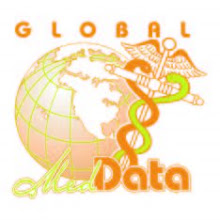President Obama’s inspiring and long overdue vision of health reform has soared into reality with the recent enactment of the stimulus bill center pieced in his plan for economic recovery. The American Recovery and Reinvestment Act of 2009 (ARRA) encompasses almost every facet of the U.S. economy, but it is the nation’s troubled health care system that remains paramount amid legislative changes. One of the primary features of the stimulus package is a $20 billion program designed to promote the adoption of health information technology (HIT) and more specifically, the use electronic health records (EHR).
The HIT components of the stimulus package converged to form the Health Information Technology Act for Economic and Clinical Health Act (HITECH Act). HITECH authorizes $20 billion in grants, loans, and incentive payments in an effort to meet the substantial challenges of implementing a new digital infrastructure head-on.
Beginning in 2011, incentive payments for physicians and hospitals participating in the Medicare program will be eligible to receive a capped amount of $15,000 for the first year of participation contingent upon demonstrating that they are “meaningful EHR users” of certified technology. This means they must submit “quality measures” and other reporting information on the use of EHR to the Department of Health and Human Services. Each successive year beyond 2011 decreases available allotments; $12,000 for the second year; $8,000 for the third year; $ 4,000 for the fourth year; $2,000 for the fifth year and $0 for any succeeding years.
Fewer than 17% of doctors and 10% of hospitals have full-fledged EMR systems in place due to a myriad of obstacles: their affordability, the lack of uniformity among software, the daunting technical and logistical challenges of installing, and maintaining, and updating them, the potentially dangerous disruption to clinical practice and patient care, and concerns about the security and privacy of electronic health information.
Even with the new federal incentives in place, most independent physicians and small practices may not be able to afford the cost of buying in-house systems. Health information technology and solution providers like Global MedData can make it extremely cost effective and simple to deliver a targeted and timely system to all constituents of health care; including the patient themselves.
“Global MedData can help doctors leverage their existing legacy data through customized EMR systems reinforced with open standards, interoperability, and seamless integration,” explains Global MedData CSO, Ravi Narayaran. “Our user interface ensures consistency and accuracy while streamlining operations of workflow management and improving quality of patient care.”
Global MedData is a provider of digital transcription services and HER to physician practices and clinics in the U.S. and to the National Health Service Hospitals in the U.K. For more information email us at: sales@globalmeddata.com
Sources:
http://content.nejm.org/cgi/content/full/NEJMp9091592
http://www.bassberry.com/communicationscenter/newsletters/
Subscribe to:
Post Comments (Atom)


No comments:
Post a Comment